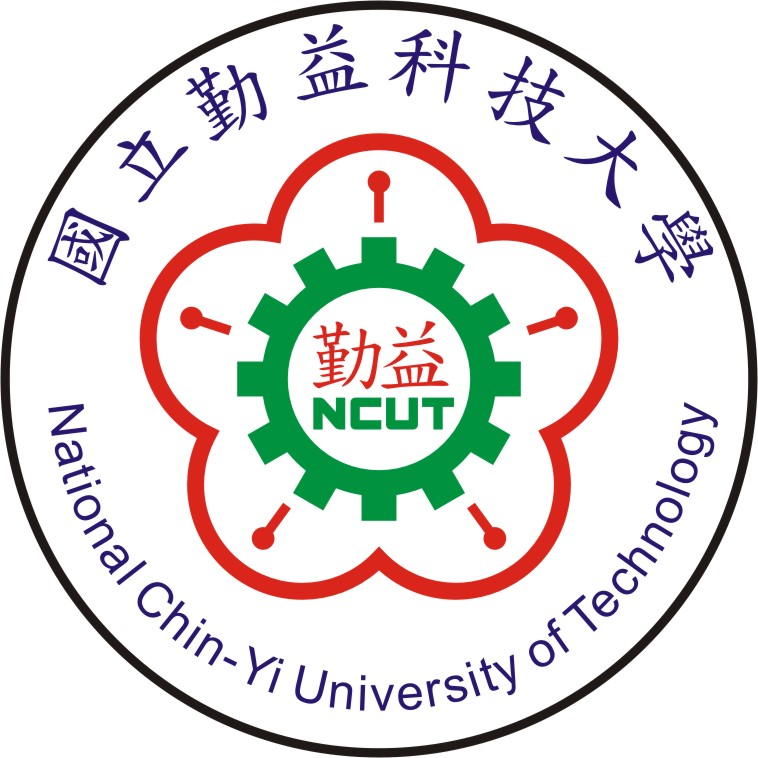Tactile Optimization and User-Centric Haptics Laboratory (TOUCH Lab)
Research Field
Hello! I am Dr. Aaron Raymond See (Member, IEEE), an enthusiastic member of the academic community at the Department of Electronic Engineering at National Chin-Yi University of Technology (NCUT). Hailing from the Philippines, I currently serve as an Associate Professor and am renowned for my pioneering work in haptics and assistive devices. As one of the international professors on campus, I have had the privilege of mentoring students from various countries, including the Philippines, Indonesia, Thailand, and India.
A brief background about myself, I was born in Manila, the Philippines and received the B.S. in Electronics and Communications Engineering from the De La Salle University, Manila, the Philippines in 2006. He obtained his masters and Ph.D. in Electrical Engineering with a major in Biomedical Engineering at the Southern Taiwan University of Science and Technology in 2010 and 2014 respectively. Subsequently, he did his postdoctoral research in Neuroscience at the Brain Research Center, National Tsing Hua University, Hsin Chu, Taiwan.
If you’re a student seeking mentorship and guidance to explore new horizons in engineering, I invite you to collaborate with me on this exciting journey of discovery and innovation. Together, we can push boundaries, inspire change, and help improve society through our innovative projects!
The Tactile Optimization and User-Centric Haptics Laboratory (TOUCH Lab) is dedicated to developing innovative assistive devices aimed at improving the health and quality of life for underserved communities in developing countries. Through our program, we seek talented students who are passionate about engineering projects that make a meaningful impact. Currently, we are focused on creating haptic-enhanced assistive devices for use in education and vocational training for the visually impaired and blind, as well as in medical and industrial training, and advanced display technologies.
Our projects integrate a wide range of disciplines, including biomedical image processing, biomedical signal processing, electronic circuit design, haptics, mechanics, materials engineering, and machine learning. Participants will engage in a project-based learning approach at National Chin-Yi University of Technology, allowing them to explore the topic of Haptic Enhanced Assistive Devices. You'll work alongside a dynamic and enthusiastic team, gaining insights into biomedical device design, design thinking, and prototyping.
This program emphasizes a hands-on, learning-by-doing approach, aiming to develop a prototype that participants can further refine and implement within various communities. Participants will also have opportunities to engage in competitions and conferences. The anticipated outcomes of the program include developing viable solutions in collaboration with institutes and NGOs in the ASEAN region, publishing journal articles, and participating in international competitions and conferences.
A Mixed Reality Haptic Platform Utilizing Haptic Gloves with Cutaneous Feedback and a Biomimetic Skin-like Haptic Sensor
The sense of touch is crucial for doctors to perform medical diagnosis and treatment. Tactile perception is especially important in the early stage of an examination for breast lumps. Subsequently, telerobotics and teleoperation have grown rapidly in importance in medicine and other fields.
Smart Haptic Gloves Development
- Create gloves with high-resolution output and various feedback mechanisms (cutaneous, force, rigidity).
- Simulate palpation and lump detection; evaluate feedback effectiveness.
Visuotactile Sensor
- Gathers physical properties: texture, ridges, temperature.
- Applicable in robot-assisted palpation and lump detection.
- Use machine vision for tactile sensing, image recognition, and 3D reconstruction.
- Develop sensor for lump detection and potential integration with robotic arms for remote operation.
- Integrate smart gloves with a haptic training platform for heartbeat palpation simulations.
Dr. See's team boasts an impressive array of accolades, having secured numerous engineering and startup awards such as:
- 2022 U-Start Innovation and Entrepreneurship Outstanding Startup (NT$ 800,000)
- 2022 TIC 100 Social Innovation Competition – Social Impact Award (NT$ 100,000)
- 2022 FutureTech Award
- 2021 Macronix Golden Silicon Awards - Silver Award, Outstanding Creativity Award (NT$230,000)
- 2021 Macronix Golden Silicon Awards – Outstanding Advisor
- 2021 Taiwan Innotech Expo – Silver Medal Award
- 2021 FITI Outstanding Entrepreneurship Award AI Prosthetic Arm (NT$ 2,000,000)
- 2020 Chinese Vocational and Industrial Education Association Golden Excellence Administration Award
- 2024 & 2019 Corning Future Innovator “Teacher Contribution Award”
- 2019 Malaysia Novel Research and Innovation Competition – Social Impact Award (RM 2,000)
- 2018-2022 Excellent Teacher Award at the Southern Taiwan Taiwan University of Technology
Dr. Aaron Raymond See, originally from Manila, Philippines, earned his B.S. in Electronics and Communications Engineering from De La Salle University, Manila, in 2006. He pursued further studies at Southern Taiwan University of Science and Technology, obtaining his Master's and Ph.D. in Electrical Engineering, specializing in Biomedical Engineering, in 2010 and 2014, respectively. He then engaged in postdoctoral research in Neuroscience at the Brain Research Center, National Tsing Hua University, in Hsinchu, Taiwan. Dr. See also enhanced his educational expertise with specialized training in Designing Student-Centered Learning at the Olin College of Engineering in the USA. His international experience was further enriched through roles as a visiting scholar at the Warsaw School of Economics in Poland in July 2019 and at the HTWG Konstanz University of Applied Sciences in Germany from June to July 2023.
2 Vacancies
Job Description
Hardware engineer:
We are currently developing haptic gloves with both cutaneous and kinesthetic feedback. In addition, our other project is in visuotactile sensors.
Software engineer
Continue in the development of our medical training platform using the haptic gloves through the use of Unity software.
The intern must be able to deliver and implement the projects
Independent studies skills
Proactive attitude
Work with the team
Preferred Intern Education Level
Bachelors, Masters or Ph.D. are welcome to apply
Skill sets or Qualities
We are interested in at least one of the following skills for the hardware engineer:
- Embedded systems
- Circuit design
- Mechatronics
- Haptics
- Tactile sensor design
- Materials Engineering
We are interested in at least one of the following skills for the software engineer:
- Unity
- Image processing
- Signal processing
- Cloud computing
- APP developer
- Database/Server management Programming languages
- Virtual environment development
